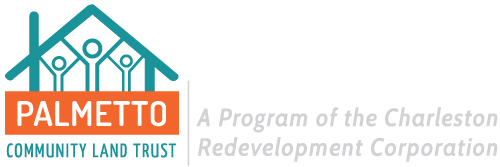Charleston’s answer for providing
long-term housing affordability
Affordable Housing Problem
In no state can a worker earning minimum afford a two-bedroom rental home at fair market rent by working a standard 40-hour week.
Nationally, the share of renters who spend the majority of their income on rent doubled from 23.8% in the 1960’s to 47.5% in 2016. Property value is increasing faster than the average American can afford. Adjusting for inflation, rent rose 61% in 50 years, while renter income grew only 5%. For home ownership, home value increased 112% while owner income rose only 50%.
In Charleston County, it takes at least a six figure income to buy a typical single-family home. The average rent in the Charleston metro area topped $1,600, higher than the national average.
Charleston’s affordable housing problem affects workers and businesses. A new study listed Charleston the worst place in the United States to launch a small business – high real estate prices is the main culprit.
Palmetto Community Land Trust Solution
Our approach to affordable homeownership is a community focused effort. Our dedication to the community is highlighted by our board, which is 1/3 participants in the PCLT program.
Community control of land where the Trust retains ownership of the land and conveys ownership of the improvements to an individual via a 99-year long-term renewable ground lease that can be inherited by future generations.
Single family detached and multi-family housing is removed from the speculative market to restrict price appreciation and to maintain long-term affordability, both in ownership and rental housing.
Preserves public and private subsidies by managing price appreciation, retaining community value, and recycling the subsidy, land, and affordable units for future generations. The resale price of CLT properties is capped by a formula to ensure affordability remains with the property owner.
Allows local control of the community’s housing future to build a long-term relationship with homeowners.
Large scale development is possible through joint venture development and public-private partnerships.
Future home of the Charleston Redevelopment Corporation




